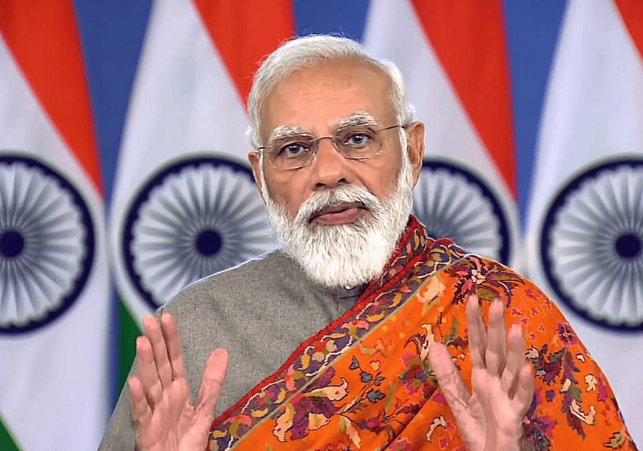

When India conducts the first summit with the five Central Asian republics on January 27 as part of New Delhi's extended neighbourhood engagement, connectivity, commerce, building an institutionalized framework for cooperation, the situation in Afghanistan will be on the table.
Because of an outbreak of Covid-19 infections, the leaders of Kazakhstan, Kyrgyzstan, Tajikistan, Turkmenistan, and Uzbekistan were unable to attend India's Republic Day celebrations on Wednesday. The five leaders were invited to attend as chief guests, though none of the countries made a public announcement.
The meeting between Indian and Central Asian leaders will be the first of its kind. The meeting demonstrates the emphasis that all six countries place on a comprehensive and long-term collaboration, according to the Ministry of External Affairs.
According to those acquainted with the situation, the summit is likely to address a number of initiatives centered on commerce and connectivity, development partnerships, institutionalized frameworks for collaboration, culture, and people-to-people relations.
The persons said some of the proposals include making the India-Central Asia Summit a regular event, establishing a permanent secretariat to boost collaboration and coordination, and increasing ministerial engagement in areas like trade, connectivity, defence, security, and tourism.
The six nations currently have a mechanism at the level of foreign ministers called the India-Central Asia Dialogue, which met for the third time in December in New Delhi. India has increased its focus on Central Asian republics, both to offset China's expanding presence in the region and to deepen collaboration in Afghanistan in the aftermath of the Taliban's takeover.
The Delhi Regional Security Dialogue on Afghanistan, hosted by India in November, brought together top national security officials from all five Central Asian republics. Tajikistan, Turkmenistan, and Uzbekistan are three of the countries that share a border with Afghanistan.
The summit will be the first of its type between Indian and Central Asian presidents, according to the external affairs ministry, and it will demonstrate how important a comprehensive and long-term alliance is to all six countries.
All five Central Asian countries have strong bilateral links with India. Kazakhstan is India's main uranium supplier as well as its largest commercial partner in the region. During 2020-21, two-way commerce, largely consisting of oil, was worth $1.9 billion.
Kazakh troops are now serving with an Indian battalion in the United Nations Interim Force in Lebanon as part of a one-of-a-kind UN peacekeeping experiment. Kazakhstan is home to roughly 8,000 Indians, including 5,000 medical students, and the two sides hold a regular joint military exercise called Kazind.
India has developed five telemedicine centres in Kyrgyzstan as part of strategic collaboration. In 2019, India granted the country a $200 million line of credit, and the two countries hold an annual combined military exercise known as Khanjar. More than 15,000 Indian students study in Kyrgyzstan.
The India-Tajik Friendship Hospital is a symbol of India's strong defence cooperation with its key partner Tajikistan, and the two nations' positions on Afghanistan are highly similar.
Read why the former Bengal chief minister rejected Padma Shri
Uzbekistan is a member of a trilateral working group for the construction of Chabahar port and is also a strategic partner of India. In 2018, it was given a $1 billion line of credit, with four projects totaling $450 million already approved. Uzbekistan is home to a number of Indian institutions and pharmaceutical industries.